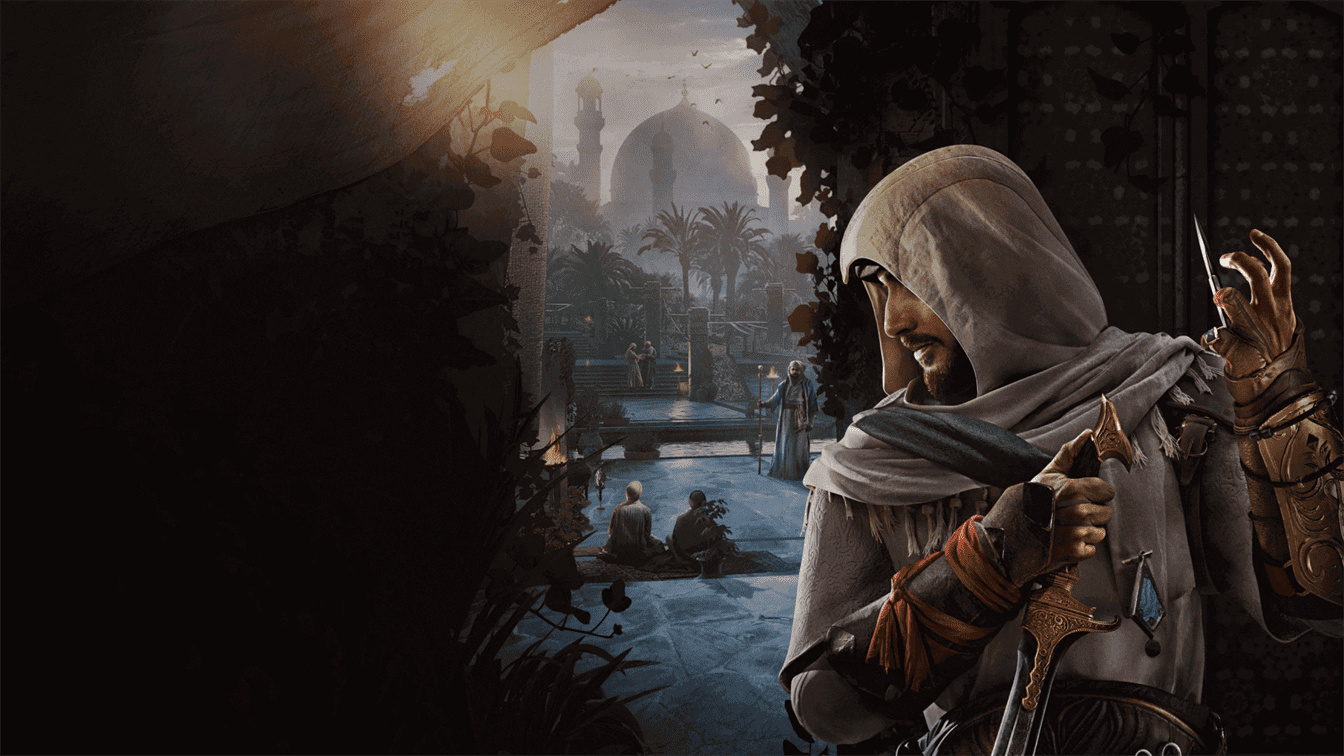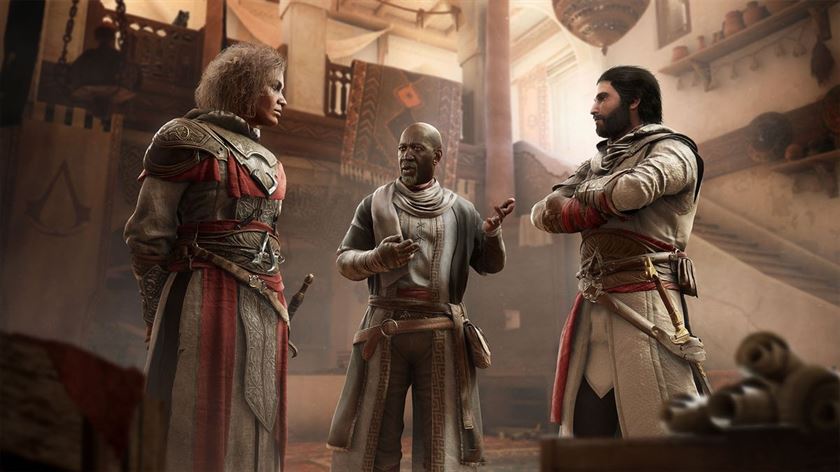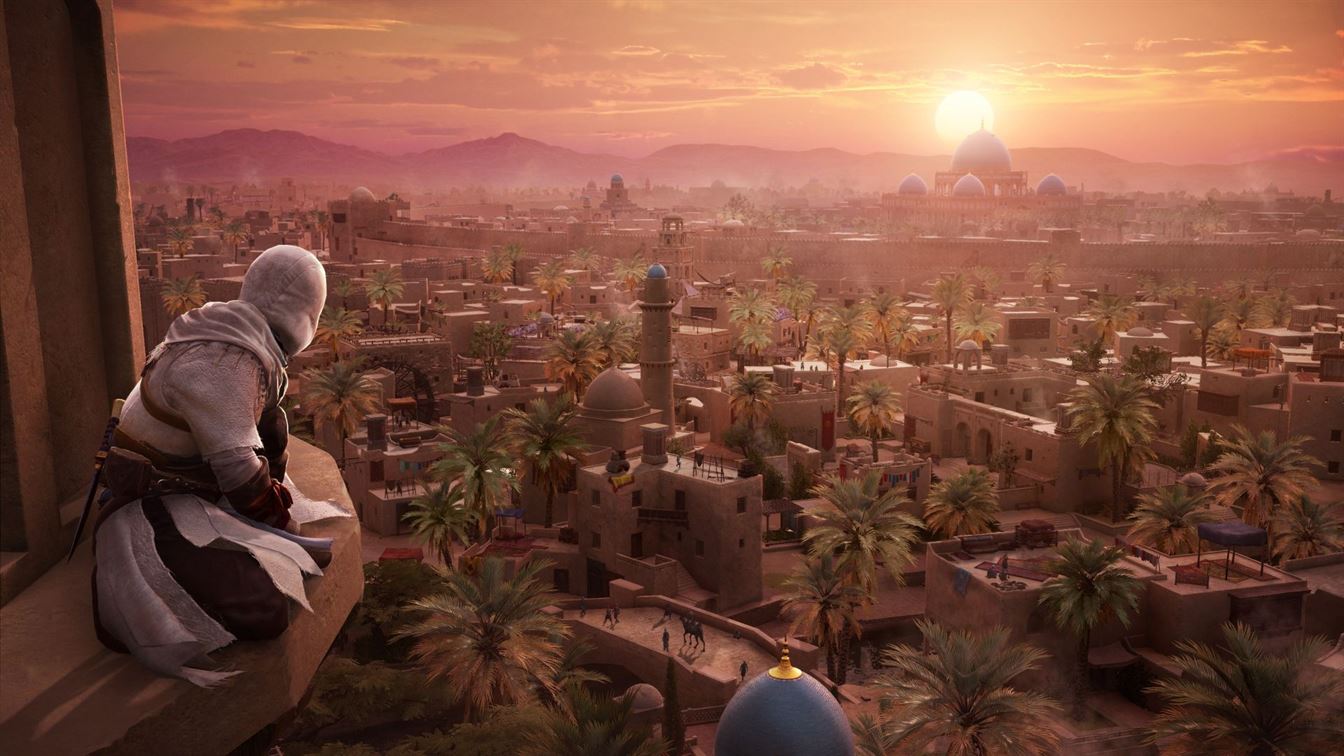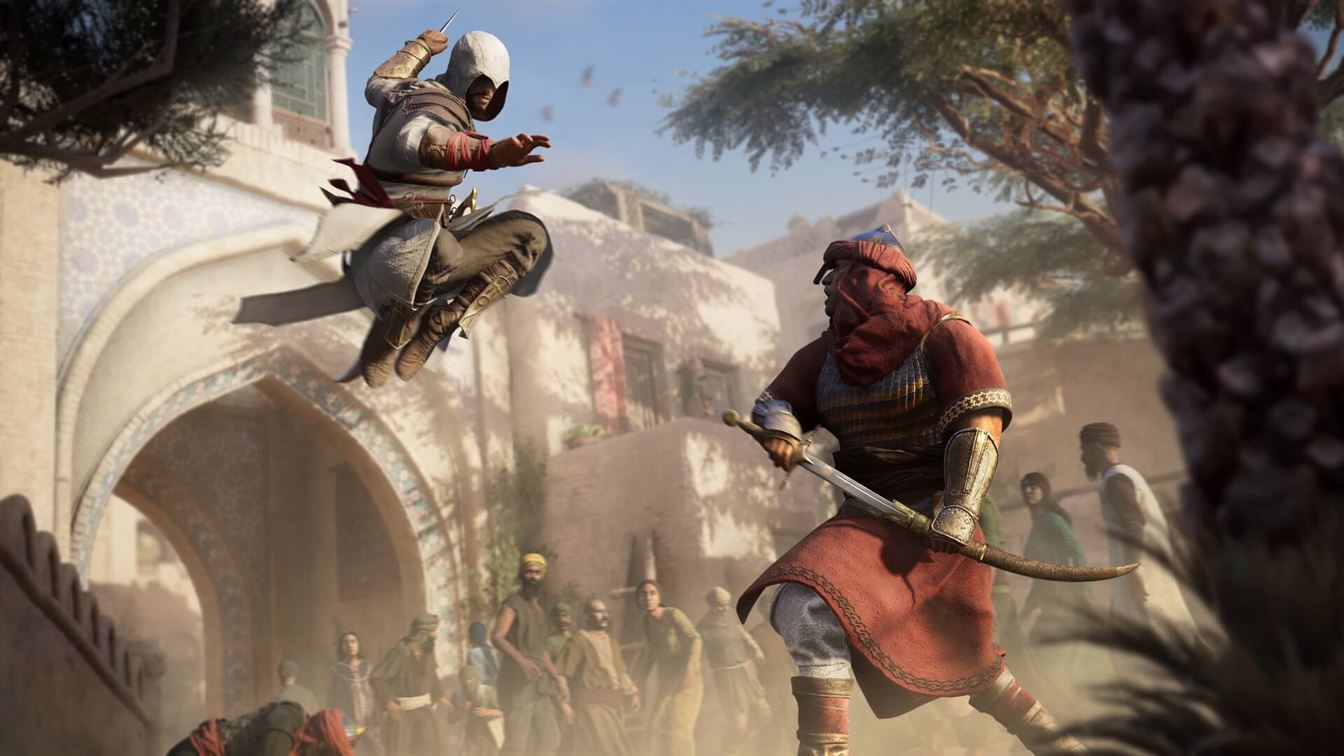“Assassin’s Creed Mirage,” Ubisoft’s thirteenth major release in the franchise, is above all else, a well crafted nod of respect to the fifteen year history of the “Assassin’s Creed” intellectual property (IP).
“Mirage,” released on October 5, 2023, takes place in ninth Century Baghdad and is a narrative prequel to the previous game, “Assassin’s Creed Valhalla.” Mirage follows Basim Ibn Ishad, a member of the Hidden Ones, the canonical predecessor of the better known “Assassins” that which the game title references. Basim, over the course of the game, is split between his devotion to the Hidden One’s mission of peace and liberty amongst Bagdad and his own foggy past which are stirred by cryptic and unsettling nightmares.

"Assassin's Creed Mirage" harkens back to the flavor and memory of what an "Assassin's Creed" game once felt like. Photo courtesy of Ubisoft
Basim’s story, as noted above, was first characterized by “Assassin’s Creed Valhalla,” released in 2020, where he served as both a teacher and villain to the main character of that Nordic set Viking story. To say the least, Basim, was left in a unique position at the end of that game where it was revealed that he was the reincarnation of the mythic god, Loki and that he also managed to, through death and reincarnation, find himself amongst the cast of characters set in the modern day story of “Assassin’s Creed” which first began all the way back in 2007.
If that sounds confusing to you, imagine how confusing that was for me as a fan of this franchise since as far back as “Assassin’s Creed 2,” released in 2009. Despite this convoluted fifteen-year narrative sprawled across thirteen full length games, dozens of DLCs and a number of both short, animated and feature length films, what “Assassin’s Creed Mirage” sets out to do, is not fix the convoluted narrative, but reintroduce both long time and new fans of the franchise to explore a setting, character, and game style which harkens back to the flavor and memory of what an “Assassin’s Creed” game once felt like.

"Mirage" immerses the player in a world which feels perfectly balanced. Photo courtesy of Ubisoft
Since the first game, plainly titled, “Assassin’s Creed,” launched in 2007, it presented players with a gameplay style which felt uniform across all of the mechanics, be that freerunning, sword fighting and of course, assassinating. What each sequel title provided, amongst the continuing modern and historical stories, was a polishing of the already established flow and feel of gameplay. This style remained consistent throughout titles, despite minor changes and additives here and there such as cinematic combo kills and more relaxed parkour mechanics.
The gameplay was unique to the “Assassin’s Creed” franchise and is one of the hallmark reasons why many longtime fans continued to play game to game. However, in 2017, this changed with the release of “Assassin’s Creed Origins,” set in Ancient Egypt and followed the story of the founder of the Hidden Ones, the early name of the order which would be redefined as “Assassin” sometime before The First Crusades, which was the setting of the initial 2007 game release. With the release of Origins came new gameplay mechanics that pivoted away from the classic sneak and stab style of play to a more RPG focused engine which, for fans like me, was a huge pivot and, if not for remarkable storytelling, would not have drawn me in.

"Mirage" takes place in 9th Century Baghdad. Photo courtesy of Ubisoft
And that is what the franchise has looked like up until now. What “Mirage” has attempted to do is capture the golden age of Assassins Creed while advancing the already complex story that many new era fans have come to love.
After playing “Mirage” for a month now, it forces the player to remember what the old games felt like and embrace it. The freerunning is charmingly clunky with moments of fluid brilliance and the fighting, though visually similar to that of its RPG predecessors, feels and plays more akin to the timing focused parry and kill mechanics of “Assassin’s Creed 2,” released in 2009, through “Assassin’s Creed Black Flag,” released in 2013.
For me, this game is what I loved about the historical side of “Assassin’s Creed.” “Mirage” immerses me in a world which feels perfectly balanced. The map is large but traversable, the missions are nonlinear but provide direction and the world, although its own, feels spiritually connected to the first few games of the franchise in setting and character.

"Assassin's Creed" is the game you had to convince your parents would help you in history class despite its blazen “M” rating. Photo courtesy of Ubisoft
I think that’s what “Mirage” provides players best, it feels like “Assassin’s Creed.” it is your older brother’s “Assassin’s Creed.” it is the game that you remember watching and ultimately playing in with the volume down at the sleepover. it is the game you had to convince your parents would help you in history class despite its blazen “M” rating.
“Assassin’s Creed Mirage” is worth a play, but is it perfect? No. In the dozens of hours this month spent investing in the story and exploring 9th century Baghdad I have had my share of frustration with not jumping or running as perfectly as I wanted, or expecting a guard not to notice me just to be ousted and attacked by more enemies than were initially spawned. However, I have to remind myself, that is part of the “Assassin’s Creed” feeling. The games were never mechanically ideal and more often than not I found myself frustrated by the same things I was mad at in what many consider the best game of the series, “Assassin’s Creed 2.”
So to me, that’s great. As a long time fan I have been waiting for a day that “Assassin’s Creed” would feel like what I remember it to be and that alone makes me thrilled. If you have any fond memories of this franchise and maybe haven’t been inclined to play in recent years, this might just be the nostalgia boost you did not know you had been looking for.



